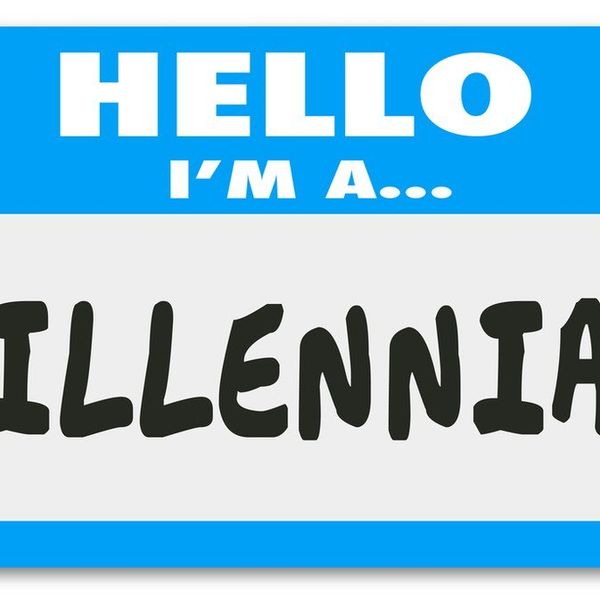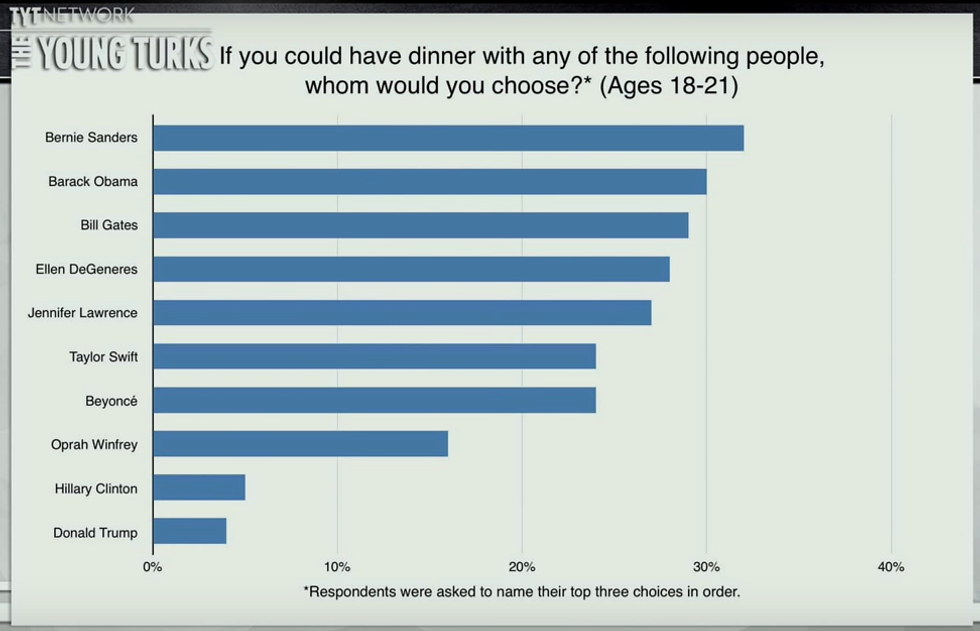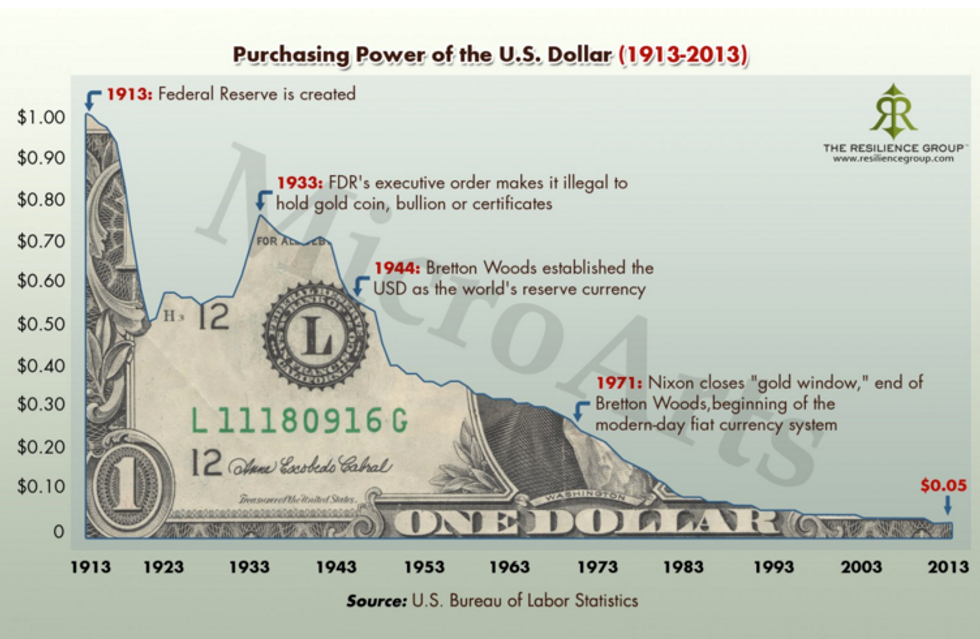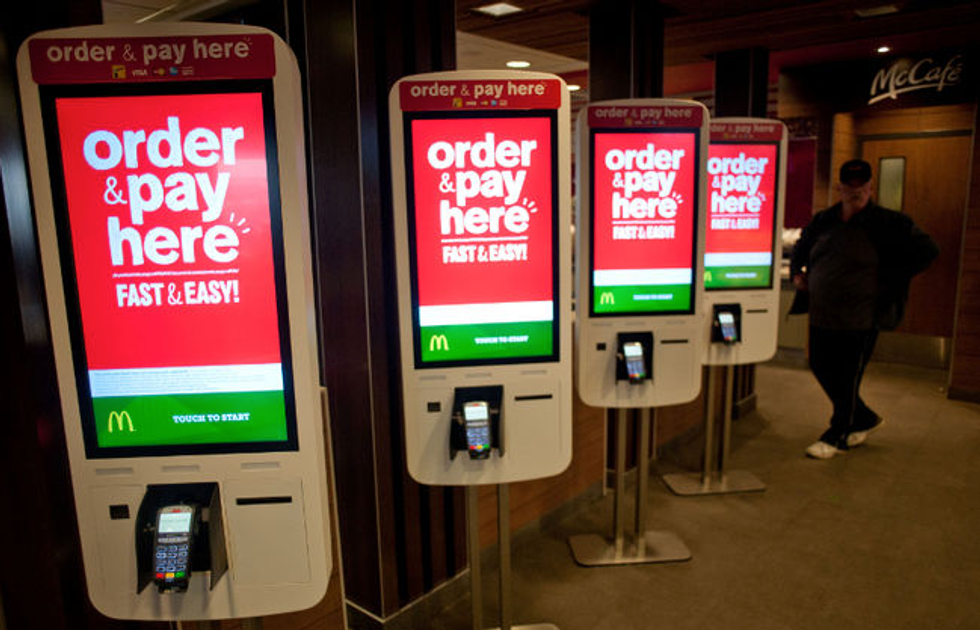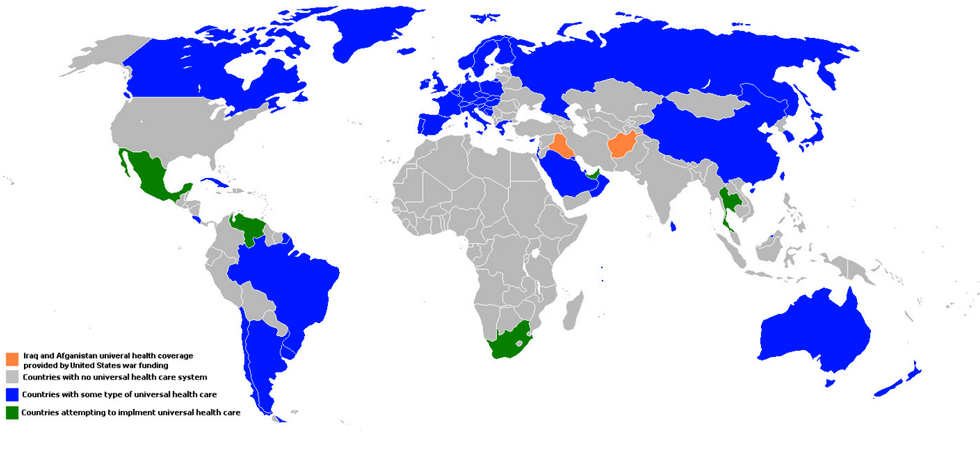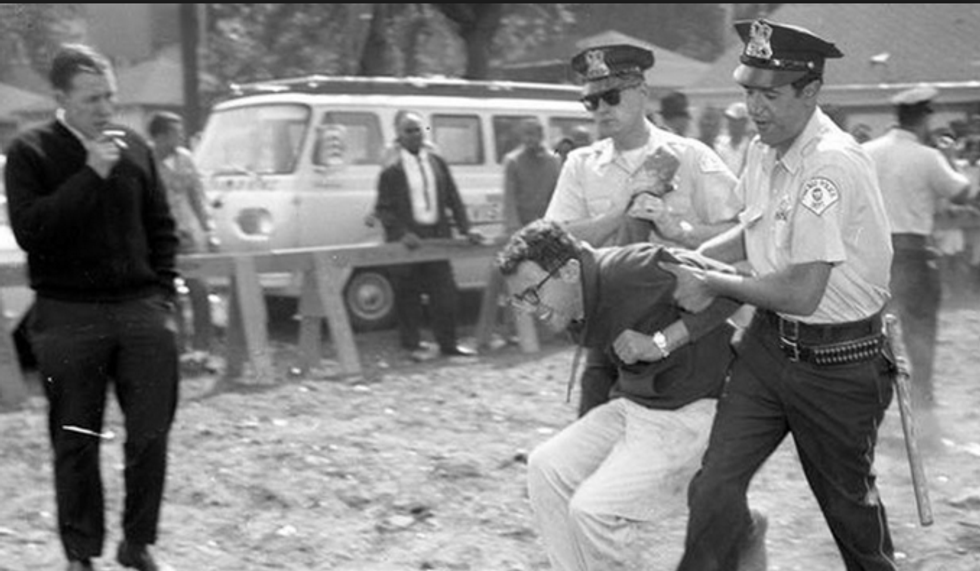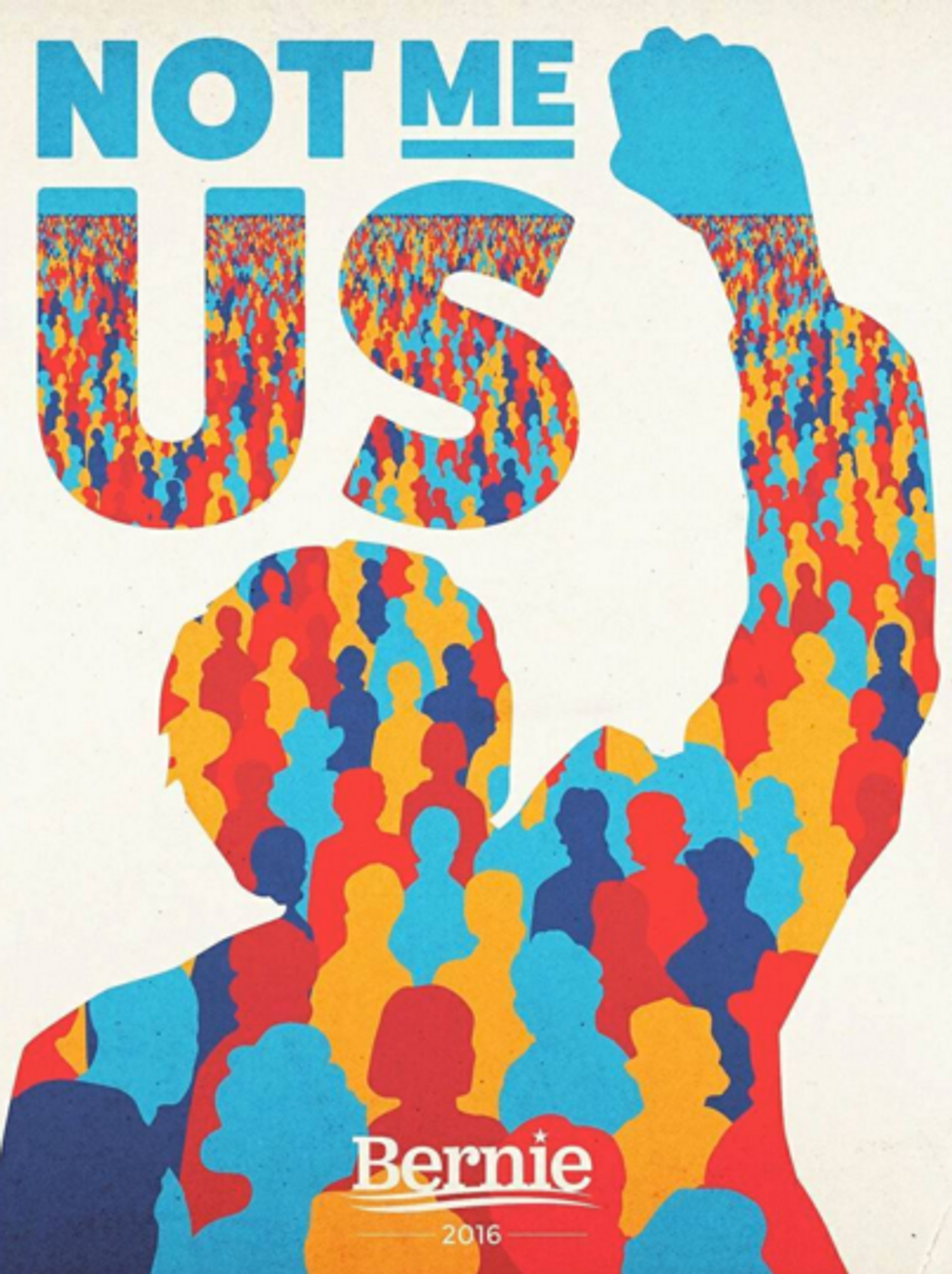How can one of the largest and most diverse generations in American history – 75.3 million strong, flock to support a 74-year-old Jew from Vermont? How can such a snapchatting, texting, twerking, reality show-watching, low-attention-span-having, superficial generation identify with Bernie Sanders? As loaded as it may be, the question has its merit. According to recent polls, Sanders still comes out on top, with a 31 percent approval rate among millennials voters – voters between the ages of 17 and 36. In comparison to other political figures like Elizabeth Warren, Bill Clinton, Hillary Clinton, and even Barack Obama, there is no competition. More laughable polls project that the Vermont senator’s popularity has reached an all time high, beating Taylor Swift and Beyoncé. Sure, it seems a little far-fetched, but one can’t help but question such immense support among voters who are young enough to be his grandchildren and great-grandchildren.
Bernie Sanders, with his tell-it-like-it-is, loudmouthed, no-nonsense attitude is appealing to young voters – not to mention his consistent progressive views. For us millennials, Bernie brings a certain level of transparency that reads as nothing short of genuine. Moreover, his plan for universal health care, free public education, taxing the upper one percent, and the deconstruction of capitalism doesn’t sound too bad either. Of course, these are exactly the policies that have many voters attributing the success of Sanders among millennials to his ability to appeal to our need to coddled or cared for.
In general, we are defined by most, but not all, as being born between the 1980s and the year 2000. We make up about 23.2 percent of the U.S. population. We’ve grown alongside the technological revolution and are extremely tech-savvy. We millennials prefer to communicate via instant message, text message, web cam, email, and social media rather than face-to-face interaction. We are used to making plans on the go and are extremely spontaneous. When it comes to political views, we come out being far left of center – almost ensuring that no prominent Republican figure will have great success among young voters for many years to come. In talking with people ages 40 and up, the overall impression I get is that millennials are just too disengaged and entitled. It doesn’t stop there. Harsher criticisms are that we lack decent moral compasses. We are inarticulate and have poor math and reading skills. We are poor writers and we lack the ability to empathize. Within our families we are more than likely the generation with the most schooling, but have little to show for it except a ton of student loan debt. We are nothing more than a bunch of social-justice-hungry kids trying to make our mark on society.
In reality, the most pressing issues among millennials are income inequality and the cost of education – of course, it doesn’t take a rocket scientist to understand why. In 2014 the average student loan debt for graduates was $33,000 – the average annual salary for millennials during their first few years in the workforce. In addition, more and more programs and jobs are requiring students to become unpaid interns, which have become the modern-day equivalent of an entry-level employee. Two years later, it isn’t uncommon to find these same students saddled with debt in the six figures – a drastic change from the '60s; when Sanders attended Chicago University and the average college tuition was about $1,400. Since 1980 that tuition has risen 757 percent. The cost of food and electricity has risen 150 percent and the cost of gasoline has skyrocketed over 400 percent. For sure, these numbers manifest themselves in interesting ways during this presidential race.
Political consultant Frank Luntz touches on a very real concern:
“…Americans 18 to 26 are extremely liberal – so liberal that ‘the hostility’ of young Americans to underpinnings of the American economy and the American government’ should frighten every business and political leader…”
The hostility that Luntz talks about isn’t lost on us. We millennials have every right to take part in the joint experience that he turns his nose up to. I’d argue that every American should feel the hostility. The future of our country is resting on the shoulders of students and former students who have a combined debt of $1 trillion in student loan debt. Just let that sink in for a moment. Most of us “undereducated” millennials don’t even know how to visualize $1 trillion, so I’ll help you.
Because of the immense strain of our debt, home ownership among people 25-34 has dropped eight percentage points in the last 10 years. There has been a notable drop in the number of new small businesses and millennials, on average, only find a full-time job after about their 11th job search. Numbers are great, but let us not forget that we are people too. I am not just my debt or the piece of paper that I’ve spent almost $173,000 trying to obtain. There is, without a doubt, a psychological component, which would explain why many leap to the entitled conclusion. Australian social researcher, Mark McCrindle, has come to the conclusion that millennials are, in basic terms, delaying the common markers of adulthood such as marriage, children, paying a mortgage and starting a career. In essence, we are extending adolescence, marked by a heightened need for social interaction. We are performing a balancing act between work and our social lives.
It makes perfect sense that the source of the idea that we are just a lazy and entitled cohort comes from us mirroring our adolescent years. This reoccurring theme would make perfect sense if it was our fault, but it wasn’t. The fact of the matter is we didn’t fail the education system… it failed us. We had problems as soon as a college degree became the new high school diploma. We had problems the moment it became absolutely imperative to go to a public or private institution of higher learning, no matter your socioeconomic status. We had a problem when businesses began outsourcing and offshoring jobs and traditionally low-paying jobs insisted on no-budge minimum wages. We definitely have a problem any time that McDonald’s, the world’s largest chain restaurant, is trying to cut back on labor costs and maximize profit.
Blame us millennials all you want, but we saw the extent of the “imperative-college” culture when first lady Michelle Obama made her “Go to college” rap video.
Sure from the outside looking in, it seems as if this cohort – saddled with debt, low employment, and little to no owned property, is looking for a debt-exempting savior to swoop down and carry them to the promised land, but is that such a bad idea? It’s not about someone else fitting the bill or a quick fix, but rather a change in the system itself – changing the economic and political system of capitalism. For many of us, Sanders is a personification of this very ideal. Hell, he’s the only candidate openly fighting and speaking against the system the capitalism! He’s the only candidate banking on personal donation to fund his campaign instead of using the dirty corporate money that some of his counterparts use. The fact is, when it comes to universal health care, the U.S. is lagging far behind the rest of the developed world. If you don’t view access to health care, regardless of income, as a right in one of the richest countries in the world, you may be suffering from capitalism greed.
If you don’t think that breaking up the six banks (honestly, too small a number) that issue more than two-thirds of all credit cards, over 35 percent of all mortgages, control 95 percent of all derivatives and hold more than 40 percent of all bank deposits in the United States you wait for the next $700 billion bailout, courtesy of the American tax payers. How can we, as a country fight imposing a tax of a fraction of a percent on Wall Street speculators, but not get upset when big banks that prey on some of our most vulnerable citizens with predatory loans for the sake of their own profit? How could we, as a country, be OK with our dangerously out-of-date Family and Medical Leave Act we signed into law in 1993, where nearly eight out of 10 workers who are eligible to take time off under this law cannot do so because they can’t afford it and 40 percent of American workers aren’t even eligible for this unpaid leave? So much for family values.
Capitalism ensures that our free market is constantly dying, a few large corporations hold near-perfect monopolies, thus limiting healthy competition and swallowing small businesses. Keeping the cost of goods and services as high as possible in order to maximize profit is the name of the game. The entire system is driven by profit, profit, profit! This is why a McDonald’s can make the decision to cut labor costs, even though competition is scare. This is how people are still struggling to find decent paying jobs on American soil. The inhumanity of capitalism is what we fight against. This is why it is possible for 11 hundred Bangladeshi factory workers to die in the collapse of a building, making something like 22 cents per hour to create cheap clothes in the name of the apparel industry, firmly rooted in capitalist greed. It’s so inhumane, yet we find it almost every facet of our everyday life.
I won’t vote for Bernie Sanders because I’m looking for a handout. I won’t vote for Bernie Sanders because I feel I’m entitled to someone else’s “hard earned money.” I’ll vote for Bernie because I think that addressing the problems surrounding class mobility and income inequality is imperative. I’ll vote for Bernie because it seems like the poor stay poor and rich get richer with their feet firmly planted on the necks of the underdogs. I’ll vote for Bernie because rebuilding America’s infrastructure seems like a good way to create 13 million American jobs. I’ll vote for Bernie because I too think that the rural economy needs attention, and family farmers needs to be protected from major corporations like Monsanto. I’ll vote because I support family farms instead of factory farms that produce unlabeled GMOs. I’ll vote for Bernie because we should dismantle inhumane deportation programs and reverse the criminalization of immigrants. I’ll vote for Bernie because we should get big money out of our political system and make sure that our politicians represent the interests of the voters and not just a handful of corporations wealthy enough to buy their influence. I’ll vote for Bernie because he actually does care about Historically Black colleges and Universities. I’ll vote for Bernie because addressing the five forms of racial violence is something that he’s been doing for over 50 years.
We millennials are ambitious, confident, goal-oriented, environmentally and politically conscious – interested in the human aspect of life, and have expansive worldviews. Our tech-savvy nature comes with a cost. We end up feeling entitled to knowing more, more quickly and we end up being a little more compassionate than we’re given credit for. We end up feeling entitled to politicians who represent our views and look out for our best interest. We end up feeling entitled to a president who will fight to disassemble a notoriously immobilizing economic and political system. We end up voting for Bernie Sanders.

